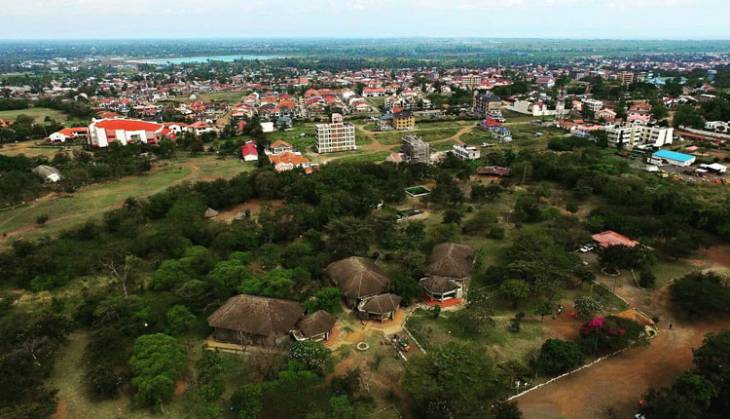How Covid–19 has impacted on segments of real estate sector

The latest real estate outlook for prime property in Kenya shows that the coronavirus pandemic has accelerated certain trends that were already in evidence prior to the outbreak.
An analysis by Knight Frank Kenya shows the short-term and longer-term implications of the crisis on various segments of the industry so far.
“We have been monitoring the market closely and our agents and occupier services teams are working hard to ensure we provide the necessary assistance to all our clients as we are in a rapidly evolving situation,” says Knight Frank Kenya Managing Director, Ben Woodhams.
“These are challenging times and we must all innovate to ensure business continuity,” he added.
For instance, commercial office operators witnessed a 68 per cent decline in office space absorption in the 1st quarter of 2020, compared to the 4th quarter of 2019.
However, this was a 60 per cent increase compared to the first quarter of 2019.
“Before the pandemic, we had witnessed a good level of inquiries both from international and local corporates and transactions were underway.
Corporates have since placed major decisions on “pause” whilst they assess their position,” says the report.
Knight Frank says prime rents remain unchanged at Sh130 per sq. ft/month despite the pandemic.
There has been an increasing trend of landlords and tenants negotiating flexible payment plans where possible, as cash flow is currently greatly affected.
The report foresees that if the pandemic continues, in the mid- to long-term, employers may take necessary measures to minimise overheads by downsizing or foregoing their office spaces.
Retail sector
Retail has been one of the most affected sectors in the property market after the massive decline in foot traffic to major malls following stringent government directives and social distancing practices.
The winners in retail have been supermarkets that have witnessed a steady stream of footfall as Kenyans visit the spaces to buy essential goods during this time.
Online shopping and deliveries has also grown as stores collaborate with delivery partners to offer customers convenience during this period.
“In the short term, some landlords have been considering rental concessions on a case by case basis as they understand the difficult situation, and are exploring ways of preserving their cash flows through service charge management and considering turnover based rentals,” says Knight Frank.
Meanwhile, hotel occupancy has plummeted to about 20 per cent as at the beginning of April, following travel restrictions, which have forced some hotels to close temporarily.
The ban on all international passenger flights as a strategy to contain the spread of Covid-19 in Kenya, hit the hospitality sector the hardest, owing to its heavy reliance on tourism and the Mice (Meetings, Incentives, Exhibitions, and Conferencing) sectors.
Adjustments by key players in the hospitality sector include temporary closure, limiting business lines and laying off or sending workers on unpaid leave until the sector picks up.
The first quarter of 2020 also saw a decline in house sales and rental prices in Nairobi.
This was mainly attributed to the prevailing macro- and micro-economic conditions coupled with an oversupply in the segment, which has resulted in a sustained price correction, which continued, from 2019.
“We have started to see a decline in prime rental levels during the duration of the pandemic as landlords are prepared to lower their expectations to attract the few new inquiries,” said Knight Frank.
There has been a noted decline in international rental inquiries and by extension the expatriate market.
However, activity in the residential market has been least affected, driven by an active local tenant pool that is contributing to an increase in digital searches.
Savvy, opportunistic buyers/tenants are taking advantage of the current situation to negotiate lower rents and purchase prices.
“Transaction levels are expected to fall drastically because of the wait-and-see attitude by prospective buyers and the closure of land registries,” says the report.















